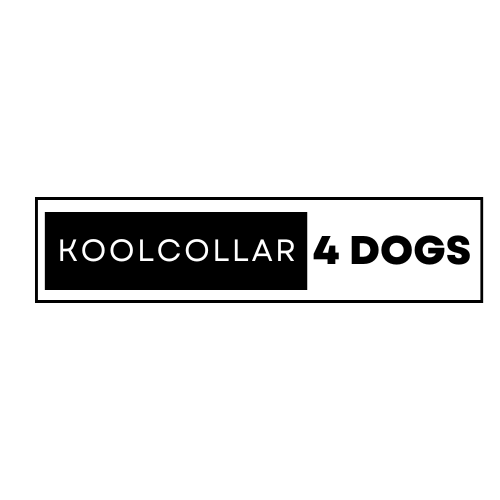Understanding sensitive stomachs in dogs
As a devoted dog parent, nothing pains me more than seeing my furry companion in discomfort. One of the most common issues our canine friends face is a sensitive stomach, which can lead to a range of unpleasant symptoms. But fear not, my fellow dog lovers! We’re about to embark on a journey to uncover the best dog food for sensitive stomachs, ensuring your pup’s tummy troubles become a thing of the past.
Sensitive stomachs in dogs can stem from various factors, including food intolerances, food allergies, or even stress. It’s a condition that can affect dogs of all breeds, ages, and sizes, making it crucial to understand the signs and take appropriate measures to alleviate their discomfort.
In this comprehensive guide, we’ll dive deep into the world of sensitive stomachs, exploring the common symptoms, the ingredients to avoid, and the top brands that cater to our furry friends’ delicate digestive health. Buckle up, because we’re about to unleash a wealth of knowledge that will have your pup wagging their tail in pure joy!
Also Read Dog Health Insurance
Common symptoms of a sensitive stomach in dogs
Before we delve into the solutions, let’s first identify the telltale signs that your pup might be dealing with a sensitive stomach. After all, recognizing the problem is the first step towards finding the right remedy.
- Vomiting: If your dog is frequently throwing up their meals or regurgitating bile, it could be a sign of a sensitive stomach or gastrointestinal disorders.
- Diarrhea: Loose, watery stools are a classic indicator that something isn’t quite right with your pup’s digestive health.
- Flatulence: Excessive gas and bloating can be uncomfortable for your dog and a potential sign of a sensitive stomach.
- Loss of appetite: If your normally ravenous pup suddenly loses interest in their food, it might be due to an upset stomach.
- Lethargy: A sensitive stomach can drain your dog’s energy, leaving them feeling lethargic and lacking their usual zest for life.
If you notice any of these symptoms, it’s time to take action and find a solution that will soothe your pup’s tummy troubles.
The Role of Fiber in Sensitive Stomach Diets
When discussing the best dog food for sensitive stomachs, it’s crucial to highlight the importance of fiber. Dietary fiber plays a significant role in maintaining digestive health and can be particularly beneficial for dogs with sensitive stomachs. The best dog food for sensitive stomachs often includes a balanced mix of both soluble and insoluble fiber.
Types of Fiber
There are two main types of fiber: soluble and insoluble. Both have unique benefits for dogs with sensitive stomachs:
- Soluble Fiber: This type of fiber dissolves in water and can help slow down digestion. Which is beneficial for dogs prone to diarrhea. It also acts as a prebiotic, feeding the beneficial bacteria in the gut.
- Insoluble Fiber: This type doesn’t dissolve in water and adds bulk to the stool. Which can help with constipation and promote regular bowel movements.
A balanced diet containing both types of fiber can help regulate your dog’s digestive system and alleviate symptoms associated with sensitive stomachs. The best dog food for sensitive stomachs will often contain a carefully balanced blend of these fiber types.
Fiber-Rich Ingredients to Look For
When choosing the best dog food for sensitive stomachs, look for these fiber-rich ingredients:
- Pumpkin
- Sweet potato
- Beet pulp
- Chicory root
- Psyllium husk
These ingredients not only provide necessary fiber but also offer additional nutritional benefits that can support overall health.
The Impact of Feeding Schedule on Sensitive Stomachs
While the quality of food is paramount, the feeding schedule can also significantly impact dogs with sensitive stomachs. Establishing a consistent feeding routine can help regulate your dog’s digestive system and minimize discomfort. Even when using the best dog food for sensitive stomachs.
Tips for an Optimal Feeding Schedule
- Stick to regular mealtimes: Feed your dog at the same times each day to help regulate their digestive system.
- Divide daily portions: Instead of one large meal, consider dividing your dog’s daily food portion into smaller, more frequent meals.
- Avoid late-night feeding: Try to feed your dog their last meal of the day at least a few hours before bedtime to allow for proper digestion.
- Monitor water intake: Ensure your dog has access to fresh water throughout the day. But consider limiting water intake immediately before and after meals to prevent bloating.
The Role of Supplements in Managing Sensitive Stomachs
While the best dog food for sensitive stomachs is the foundation of managing digestive issues, certain supplements can provide additional support:
- Probiotics: These beneficial bacteria can help balance the gut microbiome and improve digestion.
- Digestive Enzymes: These can aid in breaking down food, making it easier for your dog to absorb nutrients.
- L-Glutamine: This amino acid can help repair and protect the intestinal lining.
- Slippery Elm: This herb can soothe the digestive tract and reduce inflammation.
Always consult with your veterinarian before adding any supplements to your dog’s diet. Even when using the best dog food for sensitive stomachs.
The Importance of Food Trials
Finding the right food for a dog with a sensitive stomach often involves a process of trial and error. Conducting a proper food trial can help you identify the best diet for your furry friend.
Steps for a Successful Food Trial
- Choose a new food: Select a high-quality dog food formulated for sensitive stomachs.
- Transition slowly: Gradually introduce the new food over 7-10 days, mixing it with the old food in increasing proportions.
- Stick to it: Once fully transitioned, feed only the new food (including treats) for at least 8-12 weeks.
- Monitor closely: Keep a diary of your dog’s symptoms, energy levels, and overall well-being during the trial.
- Evaluate results: If symptoms improve, you’ve likely found a suitable food. If not, consult with your vet and consider trying a different formula.
Remember, patience is key when conducting a food trial. It may take time to see significant improvements in your dog’s digestive health. Even when using the best dog food for sensitive stomachs.
Choosing the best dog food for sensitive stomachs
When it comes to sensitive stomachs, not all dog foods are created equal. Choosing the right food for dogs with sensitive stomachs can make a world of difference in your pup’s comfort and overall well-being. Here are some key factors to consider when selecting the best dog food for dogs with sensitive stomach and diarrhea:
- Limited ingredients: Opt for dog foods with a shorter ingredient list. As fewer ingredients reduce the risk of potential allergens or irritants. Look for novel protein sources like duck, salmon, lamb, or venison.
- High-quality protein sources: Look for easily digestible proteins like chicken, turkey, or fish, as these are less likely to cause digestive issues.
- Grain-free or low-grain options: Grains can be a common culprit for sensitive stomachs. So consider grain-free or low-grain varieties that include oats or other gentle carbohydrates.
- Probiotics and prebiotics: These beneficial bacteria and dietary fiber like beet pulp can help support a healthy gut and promote better digestive health.
- Omega fatty acids: Omega-3 fatty acids can help reduce inflammation and promote a healthy digestive system.
Remember, every dog is unique. So it may take some trial and error to find the perfect food for sensitive stomach dogs that agrees with your pup’s delicate tummy.
Ingredients to avoid in dog food for sensitive stomachs
While we’re on the topic of choosing the right dog food. Let’s discuss the ingredients that can potentially wreak havoc on your pup’s sensitive stomach. Avoiding these culprits can go a long way in preventing digestive distress and keeping your furry friend happy and comfortable.
- Corn and wheat: These common fillers can be difficult for dogs with sensitive stomachs to digest, leading to discomfort and potential allergic reactions.
- Artificial preservatives and colorings: These synthetic additives can irritate your dog’s digestive system and should be avoided whenever possible.
- Excessive fat: While fat is an essential part of a dog’s diet, too much can lead to pancreatitis and other digestive issues, especially for sensitive stomachs. Look for low-fat content options.
- Dairy products: Many dogs struggle to digest lactose. The sugar found in dairy products, leading to gas, bloating, and other unpleasant symptoms.
- Spices and seasonings: While they may add flavor to our meals, spices, and seasonings can be harsh on a dog’s delicate digestive system.
By steering clear of these ingredients, you’ll be one step closer to finding the perfect dog food for digestive issues that won’t leave your pup with an unsettled tummy.
Top brands for dog food for sensitive stomachs
Now that we’ve covered the basics. Let’s dive into some of the top brands that cater specifically to dogs with sensitive stomachs. These brands have dedicated themselves to creating recipes that are gentle on your pup’s digestive system, ensuring they can enjoy their meals without any discomfort.
- Hill’s Science Diet Sensitive Stomach & Skin: This brand offers a range of dry and wet dog food for gut health formulated with highly digestible ingredients and prebiotics to support a healthy gut.
- Purina Pro Plan Sensitive Skin & Stomach: With real salmon as the first ingredient and no corn, wheat, or soy. This brand promises a nutritious and easily digestible dog food for your pup.
- Blue Buffalo Basics Limited Ingredient Diet: As the name suggests, this brand focuses on limited, high-quality ingredients. Making it an excellent choice for dogs with food sensitivities or allergies.
- Royal Canin Veterinary Diet Gastrointestinal: Developed by veterinarians, this brand offers a range of prescription GI dog food specifically formulated for dogs with gastrointestinal issues.
- Wellness Simple Limited Ingredient Diet: With a focus on natural, wholesome ingredients and no fillers or artificial additives, this brand offers a gentle and nutritious option for sensitive stomachs.
Remember, every dog is unique, so it’s always a good idea to consult with your veterinarian before making any significant changes to your pup’s diet.
Homemade options for dogs with sensitive stomachs
While commercial dog foods can be a convenient option, some pet parents prefer to take a more hands-on approach and prepare homemade meals for their furry companions. If you’re considering this route for your dog with a sensitive stomach, here are a few tips and recipes to get you started:
- Boiled chicken and rice: This classic combination is gentle on the stomach and easy to digest. Simply boil boneless, skinless chicken breasts and serve them with plain, cooked white rice.
- Pumpkin and turkey: Pumpkin is a great source of fiber and can help soothe an upset stomach. While lean turkey provides high-quality protein. Mix together cooked turkey, canned pumpkin (not pie filling), and a touch of low-sodium chicken broth for a delicious and nutritious homemade dog food for sensitive stomach.
- Sweet potato and fish: Sweet potatoes are a great source of complex carbohydrates and are easy on the digestive system. Pair them with a mild fish like tilapia or cod for a well-rounded meal.
Remember, when preparing homemade meals, it’s essential to consult with your veterinarian. To ensure your dog is receiving the proper balance of nutrients and calories.
Transitioning your dog to a new diet for sensitive stomachs
Switching your dog’s diet can be a delicate process, especially when dealing with a sensitive stomach. Abrupt changes can lead to further digestive upset, so it’s crucial to take a gradual approach. Here’s how you can smoothly transition your pup to a new diet:
- Introduce the new food slowly: Start by mixing a small amount of the new food with your dog’s current diet. Gradually increasing the ratio over the course of a week or two. This is key when transitioning to new food.
- Monitor your dog’s reaction: Keep a close eye on your pup’s behavior, appetite, and bowel movements during the transition period. If you notice any adverse reactions, slow down the process or consult your veterinarian.
- Stay consistent: Once your dog has successfully transitioned to the new diet, stick with it. Frequent changes in food can disrupt their digestive system and undo the progress you’ve made.
- Hydrate, hydrate, hydrate: Ensure your dog has access to fresh, clean water at all times, as proper hydration is essential for maintaining a healthy digestive system.
With patience and careful monitoring, you can successfully transition your pup to a new diet that will keep their sensitive stomach happy and their tail wagging.
Tips for managing a dog with a sensitive stomach
Even with the best diet in place, dogs with sensitive stomachs may still experience occasional flare-ups or discomfort. Here are some additional tips to help manage your pup’s delicate digestive system:
- Stick to a routine: Dogs thrive on routine, and this includes their feeding schedule. Establish regular mealtimes and avoid free-feeding, as this can contribute to digestive issues.
- Limit treats and table scraps: While it’s tempting to share our food with our furry friends, many human foods can be difficult for dogs with sensitive stomachs to digest. Stick to high-quality, low-fat treats and avoid feeding table scraps.
- Provide probiotics and digestive enzymes: These supplements can help support a healthy gut and improve digestion, especially during times of stress or after a bout of illness.
- Exercise regularly: Moderate exercise can aid in digestion and help prevent constipation or other digestive issues.
- Manage stress: Dogs can experience stress just like humans, and this can contribute to digestive problems. Provide a calm, relaxing environment and engage in stress-relieving activities like playtime or gentle walks.
By incorporating these tips into your pup’s routine, you’ll be well on your way to managing their sensitive stomach and ensuring they live a happy, comfortable life.
FAQs about dog food for sensitive stomachs
Even with all this information, you may still have some lingering questions about choosing the best food for sensitive stomach dogs. Let’s address some frequently asked questions to help put your mind at ease:
- Can I switch between different brands of sensitive stomach dog food? While it’s generally recommended to stick with one brand and formula once you’ve found something that works for your pup. You can switch between different brands of sensitive stomach dog food if needed. Just be sure to follow the gradual transition process to avoid digestive upset.
- How long does it take for a new diet to take effect? The timeline can vary, but most dogs will show improvement within a few weeks of switching to a new diet formulated for sensitive stomachs. However, it’s important to be patient and give your pup’s digestive system time to adjust.
- Can puppies have sensitive stomachs? Absolutely! Puppies can be just as susceptible to sensitive stomachs as adult dogs, and it’s important to choose a high-quality puppy food for sensitive stomach. That is gentle on their developing digestive systems.
- Can I mix different types of dog food for sensitive stomachs? While it’s generally not recommended to mix different types of dog food, as this can cause digestive upset. You can mix different formulas from the same brand if they are both designed for sensitive stomachs.
- What if my dog’s sensitive stomach doesn’t improve with a new diet? If you’ve tried multiple sensitive stomach dog food formulas and your pup’s digestive issues persist. It’s best to consult with your veterinarian. There may be an underlying medical condition or allergy that requires further investigation and treatment.
Remember, every dog is unique, and it may take some trial and error to find the perfect solution for your furry friend’s sensitive stomach.
Conclusion: Finding the right dog food for your furry friend
As we come to the end of our journey, I hope you feel empowered with the knowledge and tools to tackle your pup’s sensitive stomach head-on. From understanding the common symptoms to navigating the world of limited-ingredient diets and homemade options, we’ve covered it all.
Remember, your furry companion’s well-being is of utmost importance, and finding the right dog food for dogs with sensitive stomach can make all the difference in their comfort and happiness. Don’t be afraid to try different options, but always consult with your veterinarian and make transitions gradually to avoid further digestive distress.
If you’re ready to say goodbye to tummy troubles and hello to a happy, healthy pup, check out our selection of high-quality best dry dog food for sensitive stomach specifically formulated for sensitive stomachs. With a wide range of options from trusted brands, we’re confident you’ll find the perfect fit for your furry friend’s unique needs. Visit our website today and take the first step towards a life of tail-wagging joy for your beloved companion.
At the end of the day, the bond between a dog and their human is truly special, and ensuring their well-being is the ultimate act of love. So, let’s raise a (dog-friendly) bowl to happy tummies and even happier pups!





